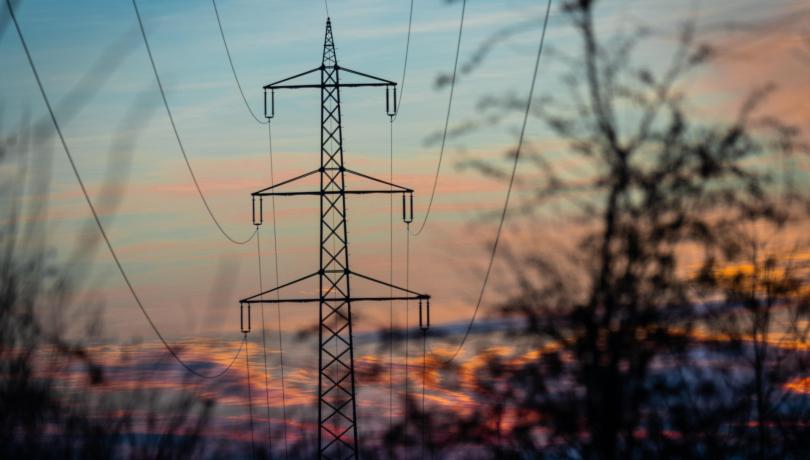In this month’s “In Depth”, we discuss the Great Iberian Blackout, its causes and consequences, with our colleague Antonio Turiel (ICM-CSIC), one of the most critical voices regarding the conventional energy transition.

On 28 April 2025, the Iberian Peninsula was plunged into darkness. From major cities to rural villages, millions of people were left without electricity for hours. Beyond the daily inconveniences — stalled lifts, unlit traffic lights, failed communications — what was experienced that day was a symptom of a deeper energy crisis, one that researcher Antonio Turiel from the Institut de Ciències del Mar (ICM-CSIC) had been warning about for years. His talk, entitled “Energy and Environmental Causes and Consequences of the Great Iberian Blackout”, given shortly after the event, served not only as a technical diagnosis but also as an urgent call to rethink the current energy model.
Turiel, a physicist, mathematician and one of the most critical voices on the conventional energy transition, outlined what he considered to be a perfect storm: an electricity grid overwhelmed by the abrupt growth of photovoltaic production, an obsolete infrastructure, and a political and industrial management that has prioritised short-term profits over long-term stability.
According to the researcher, the root of the blackout was not so much a lack of generation as a lack of coordination. In recent years, Spain has experienced a boom in solar installations, both domestic and industrial. This growth, celebrated by governments and markets as a green triumph, has had a darker side: many of these plants lack grid stabilisers, essential devices that maintain the balance between electricity supply and demand and other characteristics of the electric signal, such as voltage and frequency. Without them, photovoltaic production becomes an inflexible source, unable to respond to the problems that sometimes arise in the grid, and therefore, in the case of major incidents, it cannot respond to them.
“The electricity system is designed to function like a well-tuned orchestra, where each instrument enters at just the right moment. But what we have now is a cacophony of out-of-tune violins,” Turiel explained in his address. When, in the afternoon of 28 April, high solar production coincided with low demand and a weak adjustment capacity, the result was a cascading technical collapse.
According to the researcher, if power companies had invested in the necessary stabilisation systems and had not lobbied to relax the regulations in this regard, the blackout would not have occurred. Likewise, the researcher pointed out that in 2022 the government approved a regulation for high-voltage grid connections which effectively requires the incorporation of these devices, but it does not apply to everything installed before that date.
Beyond the technical issue, Turiel placed the blackout in a much broader context: that of the physical and ecological limits of the current energy system. In his view, the energy transition as it is currently being implemented — replacing fossil fuels with renewables without significantly reducing consumption — is unsustainable.
“We are fooling ourselves if we believe we can keep living the same way, simply by switching energy sources,” he stated. In his opinion, the risk of collapse is not just electrical, but civilisational.
This diagnosis is consistent with his previous analyses, where he has insisted that access to cheap and abundant energy has been a historical anomaly rather than a norm. On a finite planet, with limited materials and a biosphere on the brink of collapse, the idea of perpetual growth driven by clean technologies seems as dangerous as it is illusory.
For Turiel, the great blackout is not an exception but a warning. A sign of what could happen if the course of the energy transition is not redirected towards a more rational, decentralised and, above all, sober model of consumption. For this reason, the expert advocates for moving towards a system where demand adjusts to supply and not the other way around, which would entail a profound change in our way of life: less mobility, less consumption, less technological dependency.
Of course, this proposal is neither easy to digest nor to implement. It implies breaking with decades of growth-oriented policies, with major economic interests, and with a citizenry unwilling to give up its comfort. But the researcher insists, “this is not about choosing between change or continuity, but between planned change or forced collapse.”
In this sense, he also appealed to the role of the State:
“A resilient electricity system cannot be left to market logic.” On this point, Turiel asserts that public intervention is necessary to ensure investment in critical infrastructure, promote equitable access to energy, and educate the population on the need for profound transformation.
The consequences of the blackout were multiple and are still being assessed: economic losses, interruptions to essential services, paralysis of transport and, above all, a widespread sense of vulnerability. But if one thing was made clear that night, it is that energy security cannot be taken for granted. And that behind every plug, every light bulb, and every appliance lies a complex network whose stability depends on technical, political and social decisions that can no longer be postponed.
In Turiel’s words, “what happened is not an isolated failure, but a sign that we are playing with fire. And the longer we take to react, the more likely it is that this fire will consume us.”
The talk ended on a hopeful, albeit realistic, note: “There is a way forward, but it requires political will, public awareness, and a profound transformation of our way of life.” He warned that it is not a matter of going back to the caves, as some caricature it, but of finding a new balance between technology, ecology, and justice—one in which light depends not only on what happens in solar panels but on what happens in our consciousness.